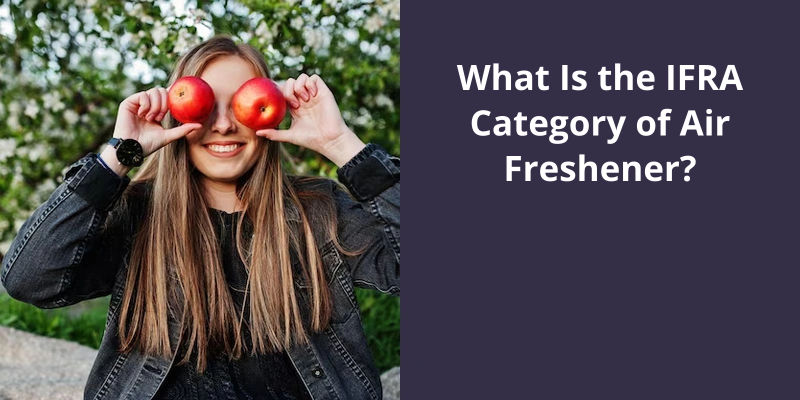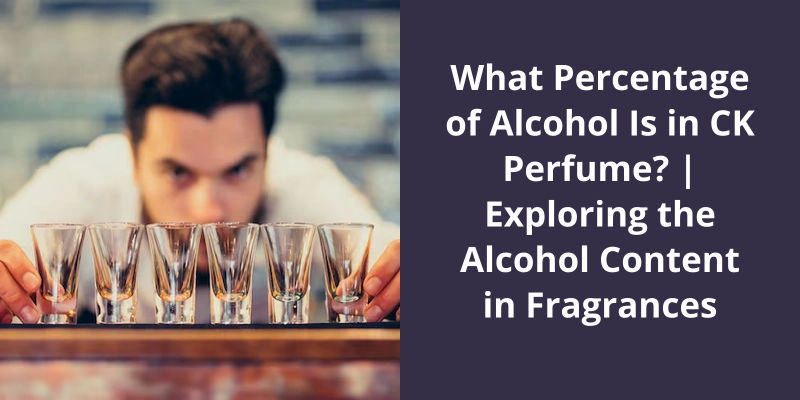The IFRA (International Fragrance Association) category of an Air Freshener is predominantly classified under Category 11, which includes other non-skin contact or minimal skin contact products. This category suggests that the substances used are minimally or not likely to come into direct contact with the skin, hence various safety and usage restrictions are imposed by the IFRA for the fragrances used in air fresheners. The IFRA guidelines are set to ensure human health safety and environmental protection while maintaining the worldwide supply of safe fragrances.

What Is the Purpose of IFRA?
This program includes an extensive risk assessment approach to evaluate the safety of fragrance ingredients, taking into account exposure scenarios and usage guidelines. IFRA also promotes good manufacturing practices and provides guidance to manufacturers on how to use fragrance materials properly and safely in their products.
IFRAs activities are based on a Code of Practice, which sets the standards for the safe use of fragrance materials. The Code of Practice is regularly updated to reflect the latest scientific knowledge and to ensure that it remains relevant and effective.
The Centre informs consumers about the potential risks associated with fragrance materials and how to use them safely.
The organization supports initiatives to reduce the environmental impact of fragrance production and to promote social responsibility throughout the supply chain.
The History and Evolution of IFRA: How the Organization Was Founded and It’s Role in the Fragrance Industry Over Time.
The International Fragrance Association (IFRA) was established to ensure fragrance safety through the establishment of global standards. It’s origins date back to 1973, and it’s since played an essential role in the fragrance industry. The organization continously defines and limits the usage of certain ingredients in a way that doesn’t compromise the safety or quality of fragrance products.
Now that we’ve a basic understanding of the different IFRA product categories, let’s take a closer look at one specific category: IFRA Category 5A. This category includes body lotion products that are applied to the body using the hands, primarily as leave-on products. But what does it mean for a product to fall under this category and how does it impact the formulation process? Read on to find out.
What Is IFRA Category 5A?
IFRA stands for the International Fragrance Association, which is a trade organization representing roughly 200 companies in the fragrance industry worldwide. The IFRA has created a set of safety standards for fragrance ingredients, called the IFRA Standards. These standards serve as guidelines for fragrance manufacturers to ensure that their products are safe for consumers to use. One of the categories under these standards is IFRA Category 5A.
These categories help to ensure the safety of products for consumers, and are updated periodically to reflect the latest safety research. The latest version of IFRA Categories is the IFRA 49th Amendment.
The IFRA 49th Amendment encompasses various product categories, including fine fragrance, body lotion, face moisturizer, hair care, and more. The IFRA Category 5A falls under the body lotion product category and refers to products that are applied to the body using the hands, primarily leave-on. These products are cosmetic in nature and can be used to moisturize and hydrate the skin.
These products can range from lightweight, fast-absorbing lotions to thicker, more luxurious creams. Some body lotions are scented, while others are unscented or fragrance-free. Regardless of the specific type of product, all body lotions in this category are designed to be left on the skin after application.
While there are many different types of body lotions available on the market, it’s essential to choose a product that’s safe and effective. IFRA Category 5A provides a standard for manufacturers to ensure that their products are safe for consumers to use. Consumers should always read product labels and consult with a healthcare provider before using any new skincare products, especially if they’ve sensitive skin or any existing skin conditions.
Conclusion
In conclusion, the classification of products into different categories is a crucial aspect of ensuring the safety of consumers. The IFRA category system plays an important role in providing guidelines to manufacturers and suppliers in the fragrance industry. This helps to ensure that the products are safe and don’t pose any risk to the users. Category 9, in particular, focuses on products that come into direct contact with sensitive areas of the body, such as the face and genitals. It’s important for manufacturers of air fresheners and other aerosols to ensure that their products comply with the guidelines set by IFRA. Therefore, strict adherence to these guidelines should be a top priority for anyone involved in the manufacture and supply of fragranced products.





